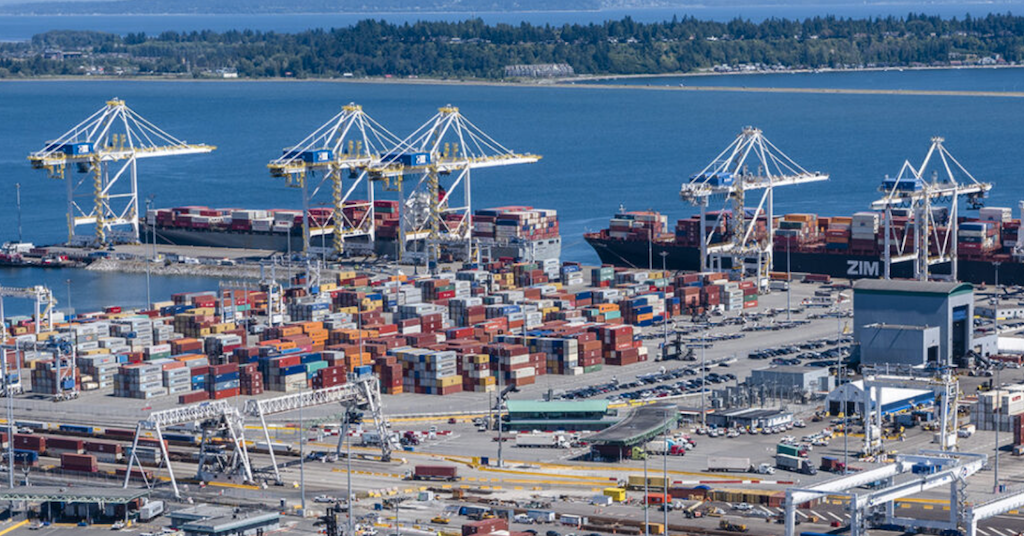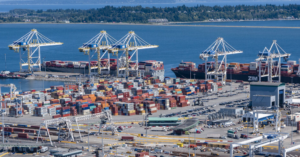
Why Longshore Workers Went on Strike and Shut Down BC’s Ports
Port strike comes to an end as dock workers reach tentative deal with employer
A strike that had BC’s busy shipping ports at a standstill has come to a close after the International Longshore Workers Union reached a tentative agreement with their employer on Thursday.
The full details of the tentative four-year agreement, which has not yet been ratified, have not yet been released. Workers had raised concerns about costs of living, port automation and outside contracting.
Over 7,500 longshore workers in BC went on strike for nearly two weeks, after their employer, the BC Maritime Employers Association, walked away from negotiations.
Labour Minister Seamus O’Reagan sent terms of a federal mediator’s contract proposal to both the union and employers on Wednesday in hopes of bringing the standstill to a close.
Simon Fraser University Labour studies and history lecturer John-Henry Harter says that he hopes the strike sets the precedent for the federal government to avoid implementing back-to-work legislation in the future.
“I’m pleasantly surprised that the federal government didn’t didn’t cave into business pressure to legislate the ILWU back to work,” Harter told PressProgress.
“I know there was an implied threat with that 24 hour deadline. But really, the employer had walked away from the table.”
A recent study from economist Jim Stanford shows that the BCMEA, which includes the six biggest global shipping lines that control 70% of world shipping, made record profit through the pandemic, with five of those companies making over $100 billion in profit in 2022.
Striking workers highlighted their employer’s record profits while workers continued to keep ports operating throughout the pandemic.
Harter adds that longshore wages have not kept pace with inflation and many workers must deal with years of precarity before making anywhere near the wages BCMEA claimed.
“One clear thing is that if your wages don’t keep up with inflation, no matter what you’re making, then you’re actually taking a pay cut,” Harter said.
“The “greedy workers” frame is the go-to frame for employers and they never reveal how much profit they’re making, or how much money their CEOs are making,” Harter said.
Other key issues included the job’s dispatch system, which means that some casual workers may have sporadic work for a number of years.
“For ILWU members, they have to work their way up in seniority and they have to work overtime and work nights just to get to the point where they’d even be within reach of the highest paid worker,” said Harter.
“For unions to be addressing this as a serious issue—for full time workers to be sticking up for those who aren’t, is really important. The past 30-40 years of employer tactics has been to make more and more of us precarious.”
Another area of concern for workers was the threat of automation displacing jobs on the waterfront.
“Workers have been fighting automation and technological change, but not in reactionary or regressive ways, as it sometimes gets framed – it’s really about keeping control of the labour process in workers hands,” Harter said.
“Employers have for that whole history of capitalism been interested in limiting workers’ power.”
During the strike, other ports along the West Coast refused to unload rerouted goods in a message of solidarity.
“International solidarity denies the employers’ ability to scab out their work. So ILWU up and down the Pacific Coast is really strong and won’t allow that to happen, and that’s hugely important,” said Harter.
Harter adds that the display of worker’s solidarity with international divisions of the ILWU will hopefully demonstrate the power of workers sticking together in order to get a fair deal.
“I hope that this emboldens people to say, ‘this is what we need to do to fight back against this inflationary pressure on us, where we’re bearing the brunt of inflation and we’re being blamed for it when we know that we are not the cause.’ I hope it’s a huge message of solidarity.”
Our journalism is powered by readers like you.
We’re an award-winning non-profit news organization that covers topics like social and economic inequality, big business and labour, and right-wing extremism.
Help us build so we can bring to light stories that don’t get the attention they deserve from Canada’s big corporate media outlets.
Donate



